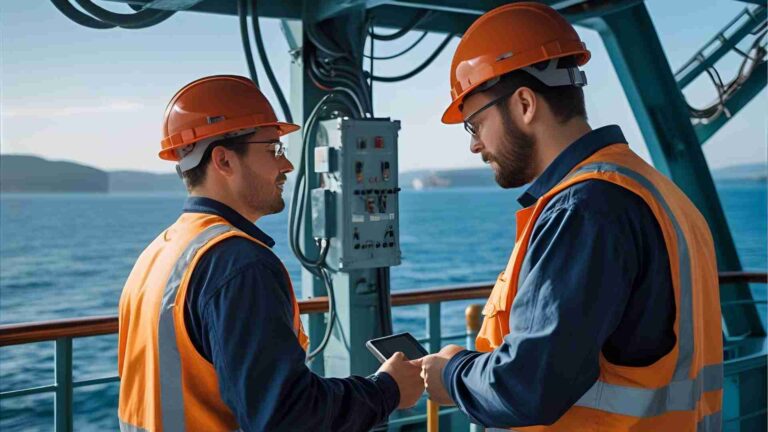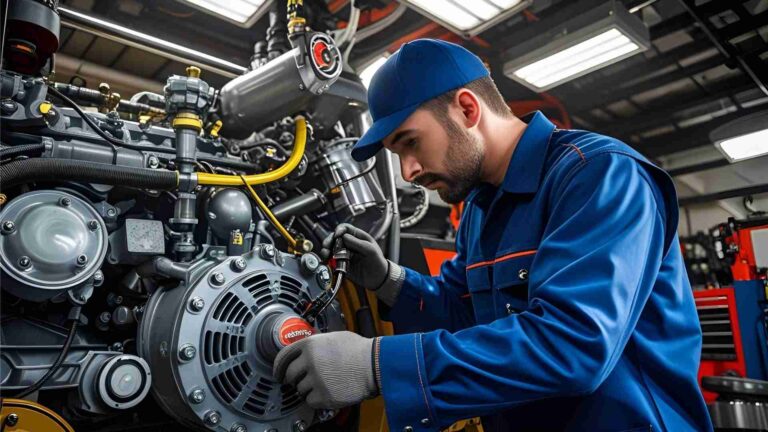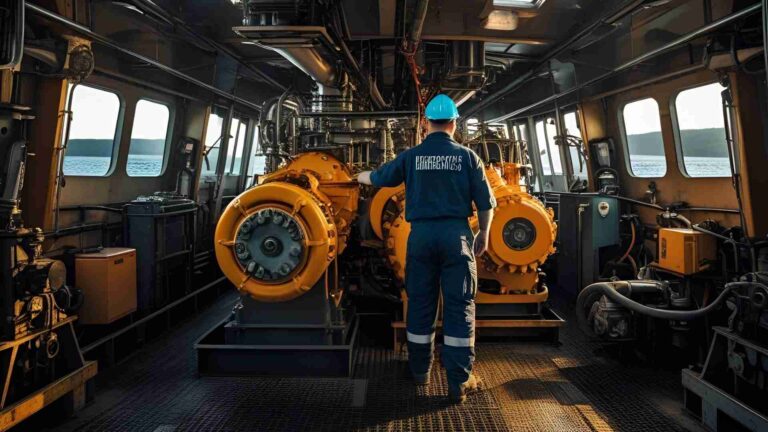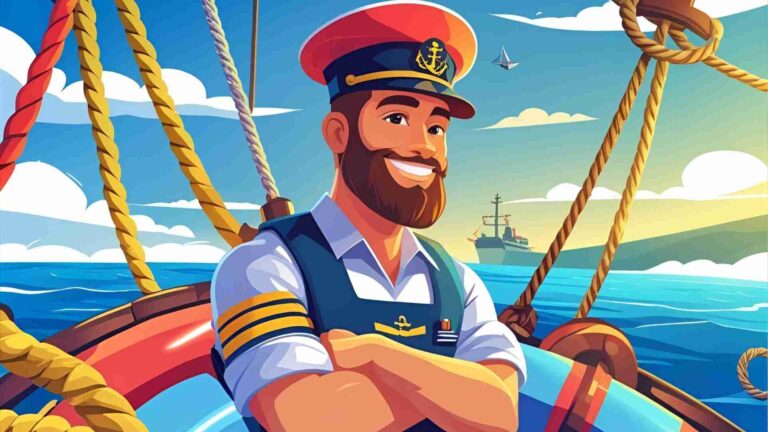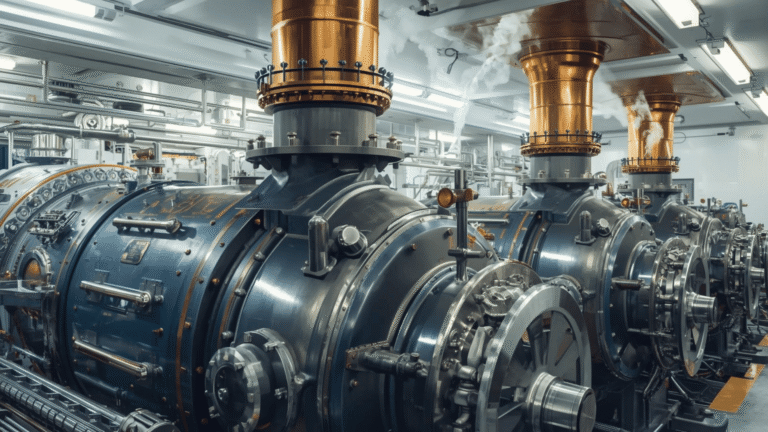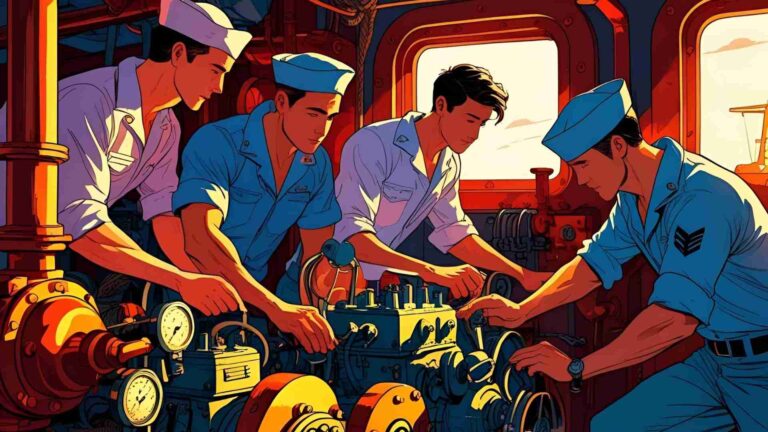Interview Questions To Ask Marine Engineer Candidates
Discover essential marine engineer interview questions to assess technical skills, problem-solving, and compliance with safety regulations.
Marine engineering is a critical field that ensures the safe and efficient operation of ships, offshore platforms, and other marine vessels. Hiring the right marine engineer is vital for maintaining operational excellence and compliance with stringent international regulations. This guide provides a detailed framework for crafting interview questions to evaluate candidates’ technical expertise, problem-solving abilities, and cultural fit within your organization. By focusing on a structured interview process, hiring managers can identify top talent capable of navigating the unique challenges of marine environments.
The Role of a Marine Engineer
Marine engineers design, develop, maintain, and troubleshoot the complex systems that power marine vessels and offshore installations. These systems include propulsion units, diesel engines, hydraulic machinery, electrical systems, refrigeration, HVAC, ballast water management, and fire-fighting equipment. Their responsibilities extend to ensuring compliance with international regulations like MARPOL and SOLAS, optimizing fuel efficiency, and managing emergencies at sea. A strong marine engineer combines technical proficiency with critical soft skills like teamwork, decision-making, and stress management.
Why Structured Interviews Matter
A well-structured interview process is essential for assessing the diverse skill set required of marine engineers. By combining general, behavior-based, job-specific, and cultural fit questions, interviewers can evaluate candidates holistically. This approach ensures that the selected candidate not only possesses technical knowledge but also aligns with the organization’s values and operational needs.
Below, we outline key categories of interview questions, sample answers, and tips to help hiring managers identify the best marine engineers. We also include practical tools like tables and charts to aid in the evaluation process.
Key Areas to Assess in Marine Engineer Interviews
Marine engineering interviews should cover the following areas to ensure a comprehensive evaluation:
- Technical Knowledge: Expertise in diesel engines, hydraulic systems, electrical systems, and other shipboard systems.
- Problem-Solving Skills: Ability to diagnose and resolve equipment malfunctions or emergencies at sea.
- Regulatory Compliance: Familiarity with international maritime regulations like MARPOL and SOLAS.
- Soft Skills: Communication, teamwork, leadership, and stress management.
- Experience and Career Goals: Relevant work history, certifications, and alignment with long-term objectives.
Chart: Key Competencies for Marine Engineers
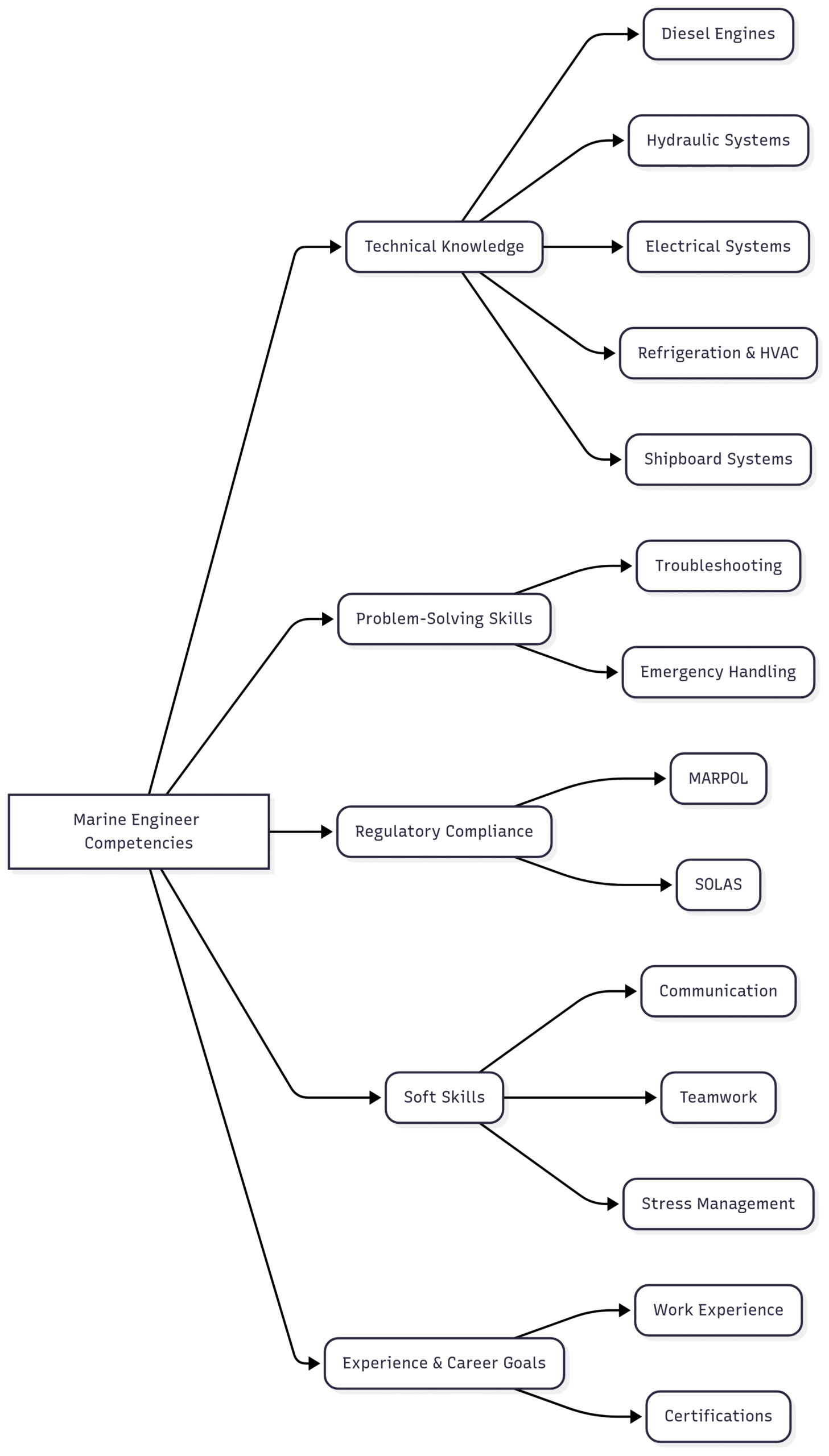
This chart visually organizes the competencies required for a marine engineer, helping interviewers structure their questions around these critical areas.
General Interview Questions
General questions provide insight into a candidate’s background, motivations, and career aspirations. These questions help gauge their enthusiasm for marine engineering and alignment with the role.
- What inspired you to pursue a career in marine engineering?
This question reveals the candidate’s passion and long-term commitment to the field. Look for answers that highlight personal motivation, such as a fascination with marine technology or a desire to work in dynamic environments. - What do you consider your greatest strength as a marine engineer?
A strong answer will highlight a specific technical or soft skill, supported by examples from past experiences. - How do you stay updated with advancements in marine technology?
Look for candidates who actively engage with industry developments through conferences, trade publications, or professional networks. - Describe a challenging project you worked on and how you overcame obstacles.
This question assesses problem-solving skills and initiative. A good response will detail the challenge, the candidate’s approach, and the outcome. - How do you prioritize tasks when working on multiple projects simultaneously?
Effective marine engineers must manage competing priorities efficiently. Look for answers that demonstrate organizational skills and strategic thinking.
Sample Answer: Challenging Project
“When tasked with retrofitting a ship’s ballast water management system to meet new IMO regulations, I faced the challenge of integrating the system within a tight timeline while minimizing downtime. I collaborated with the crew and equipment supplier to create a phased installation plan, conducted risk assessments, and implemented contingency measures. By breaking the project into manageable tasks and maintaining clear communication, we completed the retrofit on schedule, ensuring compliance and operational efficiency.”
Behavior-Based Questions
Behavior-based questions evaluate how candidates have handled real-world scenarios, providing insight into their decision-making, teamwork, and adaptability.
- Tell me about a time when you made a critical decision under pressure.
Look for a structured response that outlines the situation, the decision made, and the outcome, emphasizing safety and efficiency. - Describe a situation where you worked with a difficult team member. How did you manage it?
This question assesses interpersonal skills and conflict resolution. Strong answers will highlight diplomacy and collaboration. - Give an example of a time when you identified and solved a potential problem before it became a major issue.
Proactive problem-solving is critical at sea. Look for candidates who demonstrate foresight and technical expertise. - Share an instance where you adapted to a new technology or system. How did you approach the learning process?
This evaluates adaptability and a willingness to learn. Look for structured learning approaches, such as hands-on practice or collaboration with experts. - Describe a time when you communicated complex technical information to a non-technical audience. How did you ensure understanding?
Effective communication is key in marine engineering. Look for clarity, use of analogies, or visual aids in the response.
Sample Answer: Critical Decision Under Pressure
“During a voyage, our ship’s propulsion system failed in rough seas, leaving us adrift. As the lead engineer, I assessed the situation and determined that the primary generator was overloaded. I decided to activate the emergency generator to restore critical systems and navigated to a nearby port for repairs. By prioritizing safety and coordinating with the crew, we avoided further risks and minimized downtime.”
Job-Specific Technical Questions
These questions assess the candidate’s technical expertise in marine systems and their ability to apply knowledge in practical scenarios.
- What experience do you have with marine propulsion systems?
Look for detailed knowledge of diesel engines, gas turbines, or electric propulsion systems, supported by specific examples. - How familiar are you with international maritime regulations, such as SOLAS and MARPOL?
Candidates should demonstrate knowledge of key regulations and their practical application in marine operations. - Describe your experience with preventive maintenance programs for marine equipment.
Strong answers will include specific maintenance schedules, tools, and outcomes, such as reduced downtime or improved reliability. - What strategies do you employ to optimize fuel efficiency and reduce emissions?
Look for knowledge of fuel quality, engine tuning, and technologies like exhaust gas scrubbers or hybrid systems. - How do you approach the design and layout of engine rooms and machinery spaces?
This question tests the candidate’s ability to balance functionality, safety, and accessibility in design. - What experience do you have with electrical systems on ships, such as generators and switchboards?
Look for familiarity with troubleshooting, maintenance, and safety protocols for marine electrical systems. - Describe your knowledge of ballast water management systems and their importance.
Candidates should highlight compliance with IMO regulations and the environmental impact of ballast water management. - How do you ensure the reliability and safety of marine equipment in harsh environmental conditions?
Look for answers that emphasize maintenance, material selection, and redundancy measures. - What experience do you have with dry-docking and ship repairs?
Candidates should describe their role in planning, executing, and overseeing dry-dock operations. - Describe your experience with installing and commissioning new marine equipment.
Look for a systematic approach, including testing, calibration, and documentation.
Sample Answer: Ensuring Equipment Reliability
“To ensure equipment reliability in harsh conditions, I implement a rigorous preventive maintenance program, adhering to manufacturer guidelines and using high-quality spare parts. I conduct regular inspections to identify wear or corrosion early, particularly for components exposed to saltwater. I also incorporate redundancy in critical systems, such as backup generators, to mitigate risks. Staying updated on corrosion-resistant materials and advanced coatings has further enhanced equipment durability in my projects.”
Table: Key Technical Skills and Evaluation Criteria
| Skill Area | Key Questions | Evaluation Criteria |
|---|---|---|
| Diesel Engines | Experience with maintenance, troubleshooting, and fuel systems? | Specific examples of engine types, repair processes, and diagnostic tools used. |
| Hydraulic Systems | Familiarity with pumps, actuators, and control valves? | Knowledge of system design, maintenance, and troubleshooting techniques. |
| Electrical Systems | Experience with generators, switchboards, and control systems? | Ability to describe maintenance, safety protocols, and fault diagnosis. |
| Ballast Water Management | Knowledge of systems and compliance with IMO regulations? | Understanding of environmental impact and practical implementation of systems. |
| Regulatory Compliance | Familiarity with MARPOL and SOLAS? | Ability to apply regulations in daily operations and ensure crew compliance. |
| Preventive Maintenance | Experience with maintenance schedules and tools? | Evidence of reduced downtime or improved reliability through structured programs. |
This table helps interviewers align questions with desired competencies and evaluate responses systematically.
Growth and Development Questions
These questions assess a candidate’s commitment to professional growth and long-term fit within the organization.
- What are your long-term career goals in marine engineering?
Look for alignment between the candidate’s aspirations and the organization’s opportunities. - How do you plan to continue developing your skills and knowledge in this field?
Strong candidates will mention specific resources, such as certifications, workshops, or industry networks. - Are there any specific areas of marine engineering you would like to specialize in?
This reveals the candidate’s focus areas, such as renewable energy systems or automation.
Cultural Fit and Soft Skills Questions
Marine engineers often work in high-pressure, team-oriented environments, making soft skills critical.
- How do you foster a positive and collaborative work environment with colleagues?
Look for examples of team-building or conflict resolution. - Describe your approach to working with cross-functional teams, such as deck officers and shore-based staff.
Strong answers will emphasize communication and mutual respect. - How do you handle stress and maintain a healthy work-life balance?
Look for practical strategies, such as exercise or mindfulness, suited for long voyages. - What do you believe are the most important qualities for a successful marine engineer?
Answers should highlight technical expertise, adaptability, and teamwork.
Legal Considerations and Questions to Avoid
To ensure a fair and compliant hiring process, avoid questions related to protected characteristics, such as age, race, religion, sexual orientation, or marital status. Refrain from inquiries about personal or family matters unrelated to job performance. Focus solely on the candidate’s qualifications, experience, and ability to fulfill the role.
Interview Tips for Hiring Managers
- Prepare Thoroughly: Review the candidate’s resume, certifications, and portfolio to tailor questions to their background.
- Use a Structured Approach: Combine general, behavior-based, and technical questions to assess all competencies.
- Clarify Expectations: Provide a clear overview of the role’s responsibilities to gauge the candidate’s interest and fit.
- Encourage Questions: Allow candidates to ask questions to reveal their priorities and engagement.
- Incorporate Practical Assessments: Use case studies or simulations to test problem-solving and technical skills.
- Involve Stakeholders: Include team members or supervisors in the interview process for diverse perspectives.
Sample Interview Questions and Answers
Below are five common marine engineer interview questions with sample answers to guide hiring managers in evaluating responses.
- What experience do you have with diesel engines?
Sample Answer: “I’ve worked extensively with marine diesel engines, including MAN and Caterpillar models, performing routine maintenance, overhauls, and troubleshooting. I’m trained in fuel injection systems and have used diagnostic tools like pressure testers to optimize performance. In one project, I reduced fuel consumption by 5% by recalibrating the engine’s injection timing.” - How do you handle equipment malfunctions while at sea?
Sample Answer: “I follow a systematic approach: isolate the issue, assess potential causes, and implement a solution while prioritizing safety. For example, when a hydraulic pump failed, I used diagnostic tools to identify a clogged valve, replaced it with a spare, and restored operations within hours, ensuring minimal disruption.” - How do you ensure compliance with safety regulations?
Sample Answer: “I stay updated on MARPOL and SOLAS through regular training and ensure all operations comply with these standards. I conduct safety audits, maintain detailed logs, and train crew members on emergency protocols to ensure preparedness.” - Can you describe a situation where you made a difficult decision?
Sample Answer: “During a storm, our main engine failed, risking a collision. I decided to switch to the auxiliary engine and reroute power to critical systems, safely navigating to a sheltered area. This decision minimized downtime and ensured crew safety.” - How do you stay current with new technologies in marine engineering?
Sample Answer: “I attend IMO workshops, subscribe to journals like Marine Engineering Review, and participate in online forums. Recently, I completed a course on hybrid propulsion systems, which I applied to optimize a vessel’s fuel efficiency.”
Conclusion
Hiring a skilled marine engineer is critical for ensuring the safety, efficiency, and compliance of marine operations. By using a structured interview process with targeted questions, hiring managers can assess candidates’ technical expertise, problem-solving abilities, and cultural fit. Combining general, behavior-based, job-specific, and soft skills questions provides a comprehensive evaluation, while practical assessments and stakeholder involvement enhance decision-making. By adhering to legal guidelines and focusing on qualifications, organizations can build a strong marine engineering team capable of navigating the challenges of the maritime industry.
Happy Boating!
Share Interview Questions To Ask Marine Engineer Candidates with your friends and leave a comment below with your thoughts.
Read A Guide to Fire Pumps on Ship until we meet in the next article.

